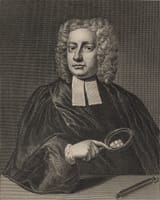Search Results
7/9/2025, 8:17:42 AM
>>509898524
>French Freemasonry emulated London’s Masonic lodges and had many shared norms. But Jacobitism was influential and the more elaborate ritual and greater religiosity slowly moved the two organisations apart. And there was another difference: the context in which the Lodges met. Britain’s constitutional structure allowed debate and balanced parliamentary and royal authority. In France, the crown lay at the centre of political power and its influence was nearly absolute
>Freemasonry in England was not a constitutional threat, rather the opposite. But in France it was perceived by the Catholic Church as a subversive if not heretical movement. It was an organisation whose leaders were openly elected, advanced deism as a central credo, and promoted the natural liberties, including justice. And freemasonry advocated a rational, analytical, fact-based approach to education, arguably the ultimate threat to an autocracy
>Ramsay’s oration and the imprimatur of France’s aristocratic and mercantile elites led to an influx of new members. And with Derwentwater as Grand Master in France, Britain was concerned that his lobbying on the Stuarts’ behalf might prove to be successful. After all, in England freemasonry had been reorganised to support the Hanoverians and the Duke of Richmond and Jean Theophilus Desaguliers had only two years earlier established lodges at Paris and Aubigny to promote a Hanoverian and Whiggist political agenda
>English Masonic Influence in France
>Although French Freemasonry is commonly associated with Jacobitism, many French freemasons were Anglophiles who favoured the ‘natural liberties’ and Enlightenment philosophical concepts associated with constitutional government, English culture, and Newton’s rationalist science
>French Freemasonry emulated London’s Masonic lodges and had many shared norms. But Jacobitism was influential and the more elaborate ritual and greater religiosity slowly moved the two organisations apart. And there was another difference: the context in which the Lodges met. Britain’s constitutional structure allowed debate and balanced parliamentary and royal authority. In France, the crown lay at the centre of political power and its influence was nearly absolute
>Freemasonry in England was not a constitutional threat, rather the opposite. But in France it was perceived by the Catholic Church as a subversive if not heretical movement. It was an organisation whose leaders were openly elected, advanced deism as a central credo, and promoted the natural liberties, including justice. And freemasonry advocated a rational, analytical, fact-based approach to education, arguably the ultimate threat to an autocracy
>Ramsay’s oration and the imprimatur of France’s aristocratic and mercantile elites led to an influx of new members. And with Derwentwater as Grand Master in France, Britain was concerned that his lobbying on the Stuarts’ behalf might prove to be successful. After all, in England freemasonry had been reorganised to support the Hanoverians and the Duke of Richmond and Jean Theophilus Desaguliers had only two years earlier established lodges at Paris and Aubigny to promote a Hanoverian and Whiggist political agenda
>English Masonic Influence in France
>Although French Freemasonry is commonly associated with Jacobitism, many French freemasons were Anglophiles who favoured the ‘natural liberties’ and Enlightenment philosophical concepts associated with constitutional government, English culture, and Newton’s rationalist science
Page 1
